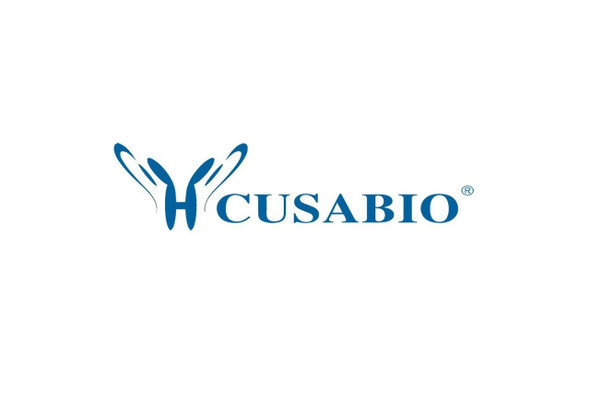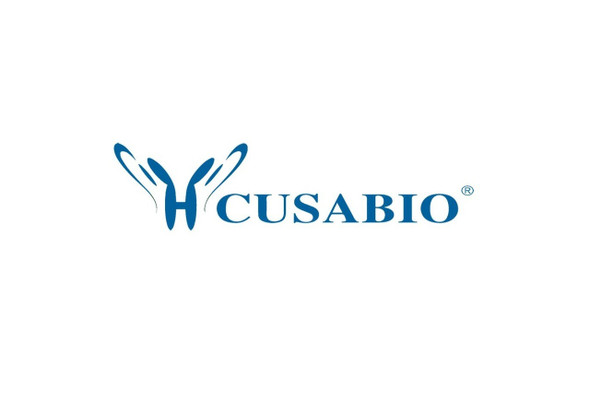Cusabio Polyclonal Antibodies
DAB2IP Antibody, HRP conjugated | CSB-PA730138OB01HU
- SKU:
- CSB-PA730138OB01HU
- Availability:
- 3 to 7 Working Days
Description
DAB2IP Antibody, HRP conjugated | CSB-PA730138OB01HU | Cusabio
DAB2IP Antibody, HRP conjugated is Available at Gentaur Genprice with the fastest delivery.
Online Order Payment is possible or send quotation to info@gentaur.com.
Product Type: Polyclonal Antibody
Target Names: DAB2IP
Aliases: Disabled homolog 2-interacting protein (DAB2 interaction protein) (DAB2-interacting protein) (ASK-interacting protein 1) (AIP-1) (DOC-2/DAB-2 interactive protein), DAB2IP, AF9Q34 AIP1 KIAA1743
Background: Functions as a scaffold protein implicated in the regulation of a large spectrum of both general and specialized signaling pathways. Involved in several processes such as innate immune response, inflammation and cell growth inhibition, apoptosis, cell survival, angiogenesis, cell migration and maturation. Plays also a role in cell cycle checkpoint control; reduces G1 phase cyclin levels resulting in G0/G1 cell cycle arrest. Mediates signal transduction by receptor-mediated inflammatory signals, such as the tumor necrosis factor (TNF), interferon (IFN) or lipopolysaccharide (LPS) . Modulates the balance between phosphatidylinositol 3-kinase (PI3K) -AKT-mediated cell survival and apoptosis stimulated kinase (MAP3K5) -JNK signaling pathways; sequesters both AKT1 and MAP3K5 and counterbalances the activity of each kinase by modulating their phosphorylation status in response to proinflammatory stimuli. Acts as a regulator of the endoplasmic reticulum (ER) unfolded protein response (UPR) pathway; specifically involved in transduction of the ER stress-response to the JNK cascade through ERN1. Mediates TNF-alpha-induced apoptosis activation by facilitating dissociation of inhibitor 14-3-3 from MAP3K5; recruits the PP2A phosphatase complex which dephosphorylates MAP3K5 on 'Ser-966', leading to the dissociation of 13-3-3 proteins and activation of the MAP3K5-JNK signaling pathway in endothelial cells. Mediates also TNF/TRAF2-induced MAP3K5-JNK activation, while it inhibits CHUK-NF-kappa-B signaling. Acts a negative regulator in the IFN-gamma-mediated JAK-STAT signaling cascade by inhibiting smooth muscle cell (VSMCs) proliferation and intimal expansion, and thus, prevents graft arteriosclerosis (GA) . Acts as a GTPase-activating protein (GAP) for the ADP ribosylation factor 6 (ARF6) and Ras. Promotes hydrolysis of the ARF6-bound GTP and thus, negatively regulates phosphatidylinositol 4, 5-bisphosphate (PIP2) -dependent TLR4-TIRAP-MyD88 and NF-kappa-B signaling pathways in endothelial cells in response to lipopolysaccharides (LPS) . Binds specifically to phosphatidylinositol 4-phosphate (PtdIns4P) and phosphatidylinositol 3-phosphate (PtdIns3P) . In response to vascular endothelial growth factor (VEGFA), acts as a negative regulator of the VEGFR2-PI3K-mediated angiogenic signaling pathway by inhibiting endothelial cell migration and tube formation. In the developing brain, promotes both the transition from the multipolar to the bipolar stage and the radial migration of cortical neurons from the ventricular zone toward the superficial layer of the neocortex in a glial-dependent locomotion process. Probable downstream effector of the Reelin signaling pathway; promotes Purkinje cell (PC) dendrites development and formation of cerebellar synapses. Functions also as a tumor suppressor protein in prostate cancer progression; prevents cell proliferation and epithelial-to-mesenchymal transition (EMT) through activation of the glycogen synthase kinase-3 beta (GSK3B) -induced beta-catenin and inhibition of PI3K-AKT and Ras-MAPK survival downstream signaling cascades, respectively.
Isotype: IgG
Conjugate: HRP
Clonality: Polyclonal
Uniport ID: Q5VWQ8
Host Species: Rabbit
Species Reactivity: Human
Immunogen: Peptide sequence from Human Disabled homolog 2-interacting protein (85-100AA)
Immunogen Species: Homo sapiens (Human)
Applications: ELISA
Tested Applications: ELISA
Purification Method: Antigen Affinity Purified
Dilution Ratio1:
Dilution Ratio2:
Dilution Ratio3:
Dilution Ratio4:
Dilution Ratio5:
Dilution Ratio6:
Buffer: Preservative: 0.03% Proclin 300
Constituents: 50% Glycerol, 0.01M PBS, pH 7.4
Form: Liquid
Storage: Upon receipt, store at -20°C or -80°C. Avoid repeated freeze.
Initial Research Areas: Cancer
Research Areas: Cancer






